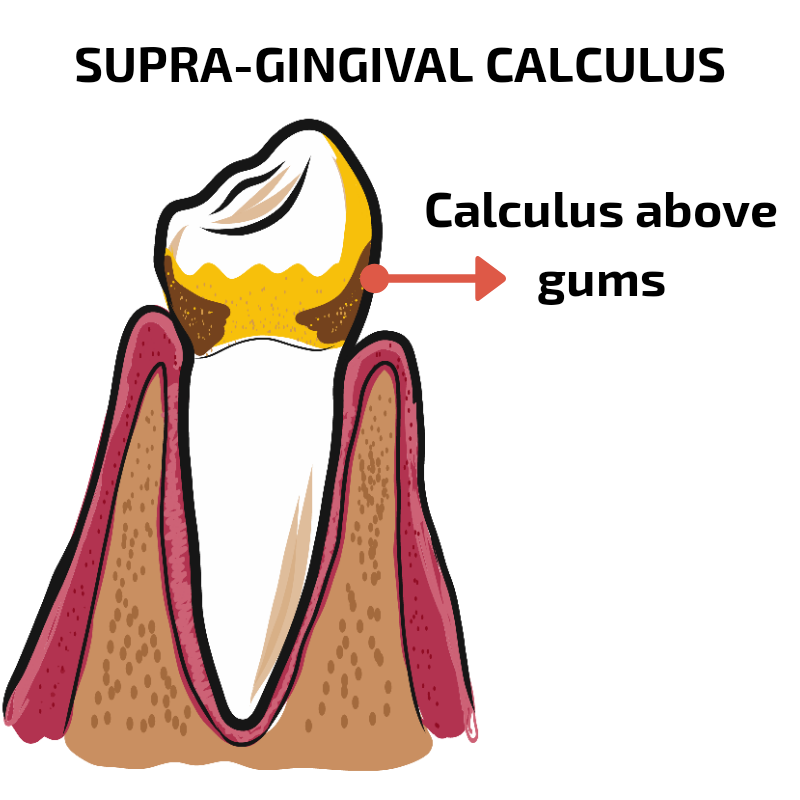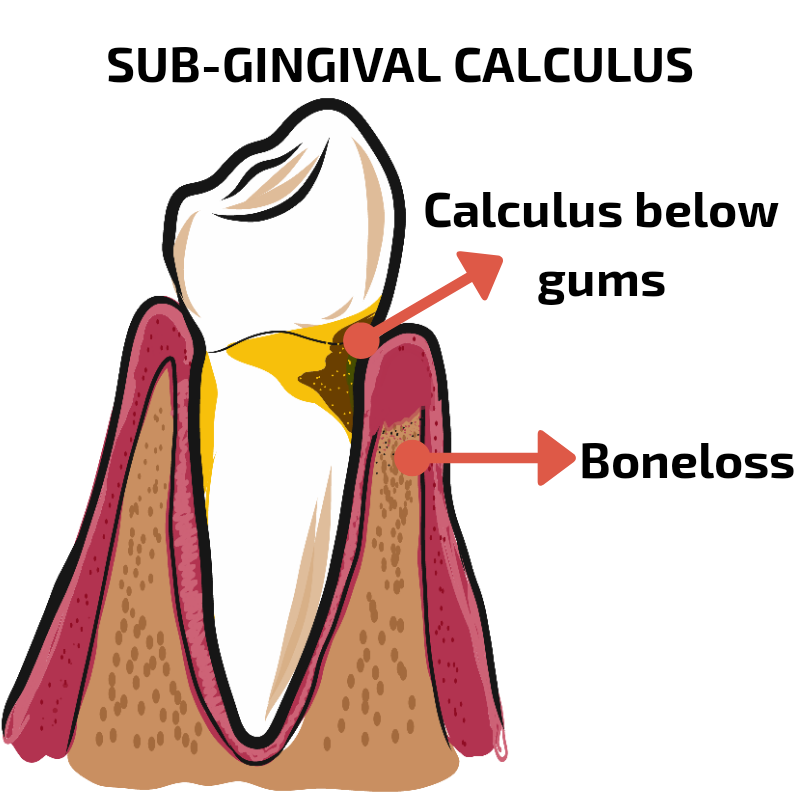Do you hate dental cleaning? I hate it too! Dental cleaning hurts so much that most people are afraid of the dentist. As a result, they fail to fulfill their scheduled appointments.
But as a dentist I would suggest you go for regular dental cleaning procedures. This helps in maintaining your dental hygiene and your personal health.
Regarding pain during cleaning, you can reduce this pain with few tips. Let’s dig deep into it.
Table of Contents
Why does dental cleaning hurt?
There are various types of the dental cleaning. We will have a detailed discussion in the next part of this article. But for now, let us know the most common reason for pain/sensitivity during dental cleaning.
Take the first step to a better Oral health!
Get tips on Oral health and discover ways to improve your Dental health. Sign up today
A normal dental cleaning procedure usually requires an ultrasonic tip to remove the debris on the teeth. This tip vibrates at an ultrasonic frequency and helps in dislodging the debris from the teeth.
The ultrasonic scaler vibrates on the teeth and can produce severe sensitivity on the teeth. But the intensity of this sensitivity varies from person to person.
Few patients might suffer from only mild sensitivity while scaling, on the other hand, few might experience uncontrolled sensitivity when the ultrasonic tip touches the tooth. A very few are totally free from this dental anxiety.
On the other hand, patients with worn teeth (we call it attrition in dental terms), might face sensitivity during ultrasonic cleaning. The more the attrition, the more the patient might feel sensitivity while cleaning.
But, before knowing how dental cleaning hurts teeth, we should know the types of cleaning.
Types of dental cleaning
There are 2 types of cleaning. Supra-gingival cleaning and sub-gingival cleaning.
Supra-gingival cleaning

In the initial days, plaque accumulates over the teeth and transform into calculus. This usually occurs on the surface of the teeth that is present above the gums. Such calculus can be removed with supra gingival scaling or cleaning.
Supra-gingival cleaning is less painful and is less traumatic. Hence, the patient experiences less pain during the cleaning process.
Sub-gingival cleaning

In case, the supra gingival calculus or debris is not cleaned and stays for more time, it can lead to extension of the debris below gingiva. This is called sub-gingival calculus.
Sub gingival calculus can lead to swellings and bleeding gums. Cleaning sub-gingival calculus is more difficult and may take a bit longer.
Moreover, the cleaning procedure is painful and may cause lot of bleeding.
8 tips for painless cleaning
If you can reduce the amount of calculus deposition on the teeth, you can ultimately reduce the time taken for cleaning. As a cleaning procedure in patients with mild calculus is simple and easy, the patient will have less pain to feel.
Do you know, you can have a painless cleaning treatment by following these simple tips?
Brush twice daily
Brushing twice daily can reduce the debris load on your teeth. This can lead to less calculus accumulation. Hence brushing in morning and evening is a good habit and saves you from painful cleaning procedures.
Use electric brush
How does an electric brush reduce cleaning pain? I know this question will bother you. Electric brushes reduce the time of brushing and prevent over brushing.
Over brushing can cause sever attrition on teeth and can lead to sensitivity. This can further hamper your cleaning experience.
Use dental floss
Food in-between teeth are difficult to clean. They are tough and gets solidified into calculus. Such calculus grows below the gums (Sub-gingival calculus) and is more painful to remove.
A floss can remove such debris in-between teeth. Using floss every day after brushing can reduce the chance of sub-gingival calculus formation.
Prefer anti-plaque mouth wash once a week
Antiplaque mouthwashes help in reducing the debris deposition on your teeth. It can further reduce the amount of calculus formation below and above the gums.
Using antiplaque mouthwashes is ideal in patients having more debris on their teeth. Use them occasionally, more preferably once in a week.
Remember! Excess use of mouthwash may stain your teeth.
Use de-sensitizing paste
If your teeth are more worn than others, you might have more chance to supper severe sensitivity while cleaning. Such patients should use desensitizing pastes for a week (preferably) before planning dental cleaning.
The de-sensitizing paste acts by blocking the dentinal tubules in your teeth and helps in reducing the sensitivity at the time of cleaning.
There are a bunch of DE-sensitizing pastes available in the market. You can find the list of these pastes here.
Numb your teeth before cleaning
Are you apprehensive of dental cleaning? Such patients should have their teeth numbed before dental cleaning.
People with less pain threshold cannot bear mild sensitivity. They are usually uncooperative during the dental cleaning. Such patients should be anesthetised using Local anaesthesia.
It makes the procedure painless and you will have a pleasant dental treatment. Ask your dentist to numb your teeth if you fall into this category.
Use painkillers
Painkillers are medications advised after the dental cleaning procedure if you have uncomfortable sensitivity on your teeth.
Usually, very few patients might experience pain or sensitivity in their teeth even days after the treatment. Such patients should go for painkillers to get relief.
Using painkillers before dental cleaning might not be useful!
Have cleaning more frequently.
Yes! You heard it right. Having frequent cleaning might reduce the amount of debris on the teeth. Hence there is less work to do on your teeth while cleaning.
This in turn reduces the sensitivity on the teeth.
Check for bruxism like habits.
Bruxism is a parafunctional habit, where the person has uncontrolled chewing movement while sleeping.
Such patients have severe worn out teeth making them sensitive to dental cleaning.
If you are a bruxer, then you should reveal the situation with the doctor before the treatment. Your dentist might take necessary measures to reduce sensitivity while treatment.
Bruxers should have their teeth anesthetize before dental cleaning.
Teeth cleaning at home
There are many dental cleaning tools for teeth cleaning at home.
Dental floss
Dental floss is a thread like cleaning aid that runs between the teeth and help in removing inter-dental debris and calculus.
They primarily help in maintaining healthy gums by stimulating blood circulation in gums.
But remember, excess flossing is harmful and may result in deep pockets between teeth. Anything above limits is a poison.
Electric toothbrush
Patients who tend to overbrush or underbrush can take the help of electronic toothbrush.
Recent studies found that electric toothbrushes can remove more debris than the regular manual toothbrushes. This helps those who underbrush their teeth.
On the other hand, people who tend to over brush their teeth can use the help of timer in their electric toothbrushes to warn them. Hence the electric toothbrushes are way more superior in hygiene maintenance.
Recent times we have seen the electric toothbrushes coming with an inbuilt flosser. This is an added advantage. You can floss while you brush.
This helps in the precise removal of subgingival calculus to an extent. They also help in dislodging fragile calculus around the teeth.
You can also see more oral hygiene aids to buy here.
Timely use of these household dental hygiene aids helps in preventing accumulation of debris around the teeth. It in turn helps in maintaining good oral hygiene, which can reduce the need for professional dental cleaning.
So it’s up to you, whether to have good oral hygiene or professional dental cleaning. But a healthy mouth helps in maintaining the overall health of your body.
- Is oral hygiene compulsory for kids? - January 13, 2023
- How to Choose the Best Dental Crown for Your Smile? - December 8, 2022
- Who needs antibiotics before dental work? What is antibiotic prophylaxis? - October 31, 2022



